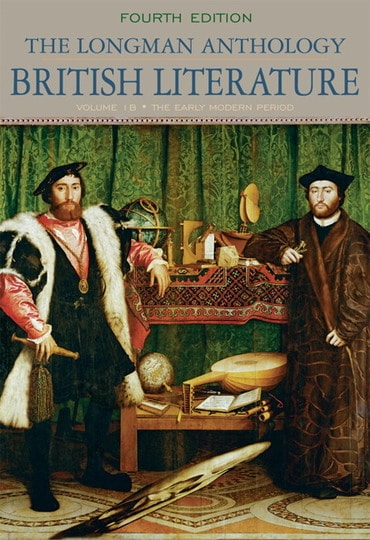Switch content of the page by the Role togglethe content would be changed according to the role

Longman Anthology of British Literature, The: The Early Modern Period, Volume 1B, 4th edition
Published by Pearson (January 25, 2016) © 2010
- David Damrosch Columbia University
- Kevin J. H. Dettmar Pomona College
- Clare Carroll Queens College, City University of New York
- Andrew David Hadfield
$85.32
Price Reduced From: $106.65
Need help? Get in touch